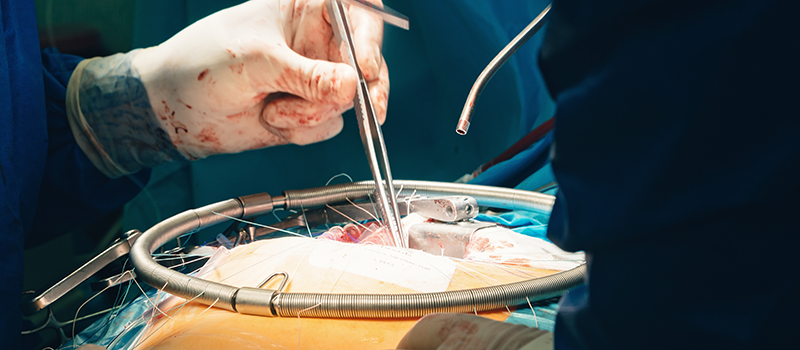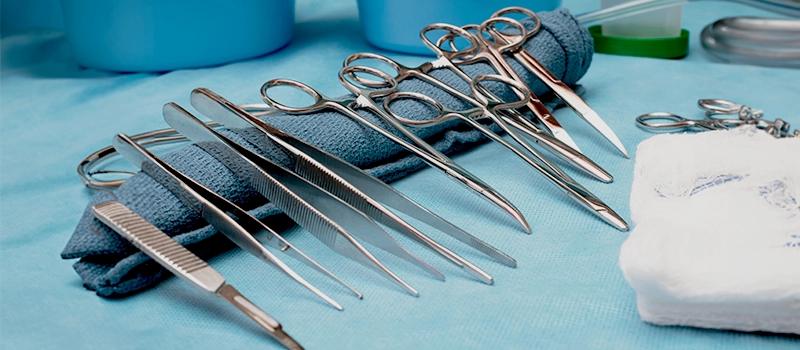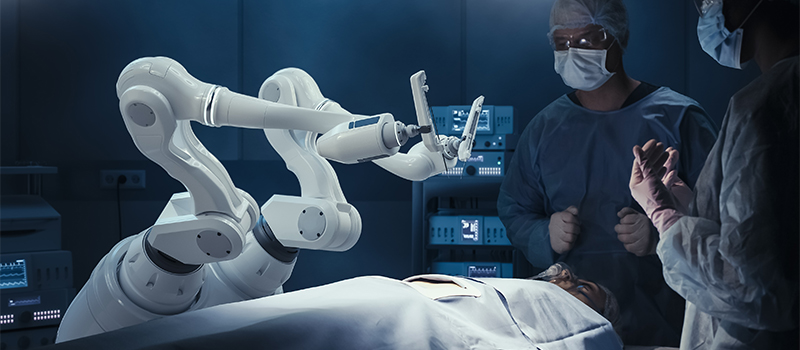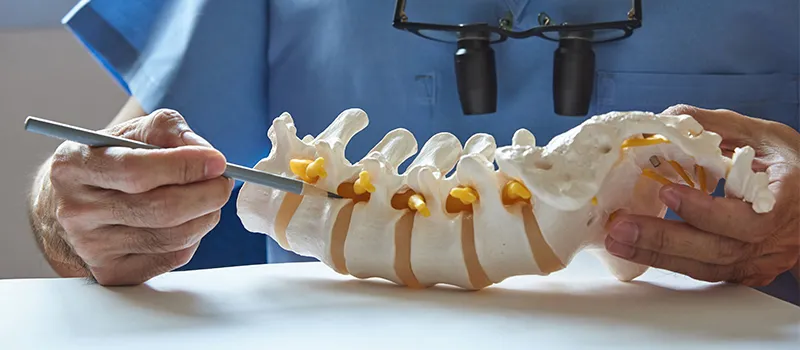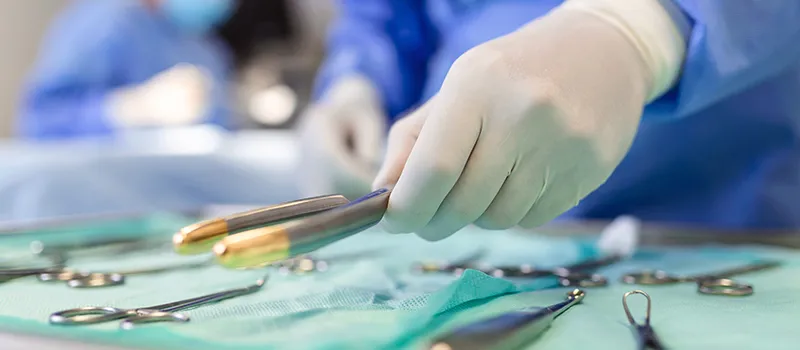
A Complete Guide to Becoming a Surgeon in India
Performing invasive and non-invasive treatments on the human body is the surgeon’s basic role. The surgeon attempts to assist the patient in overcoming the disease by assisting the patient with deformities and injuries through the operation. Surgery has a variety of specialties; one can become an eye surgeon, general surgeon, neurosurgeon, cardiovascular surgeon, plastic surgeon, orthopaedic surgeon, or oncologist. You would have observed that the surgeons have a crew supporting them, who make all the necessary preparations before the procedure may begin and assist during the surgery. A surgeon is a medical professional who operates or conducts surgery on patients. Along with doing elective and preventive surgeries on the patients, these medical professionals also perform diagnostic procedures.
Why Consider to Become a Surgeon in India?
India is the second-most populous nation in the world, and its healthcare industry has only grown since its independence. With the growing population and requirement for healthcare facilities, the demand for doctors is increasing.
While we all aim to achieve specific goals in our lives, we all know that we enjoy the journey more than we appreciate the realization of our goals. The field of medicine is fascinating too. Being in a position of understanding the human body and knowing how to bring it back on track and the experiences in between are the ones that you will cherish for your lifetime. Moreover, the satisfaction of saving lives goes far beyond the feeling of anything. Being a doctor is an honor and a responsibility of a lifetime.
There can be millions of reasons to pursue a career in medicine and become a doctor which can be listed here. However, the most important reason is your call. The pathway to becoming a doctor is not an easy one. If you want to become a doctor, you need self-motivation and an unshakable reason for pursuing a career in medicine that should come from within.
How to become a Surgeon in India
Here are a few guidelines that you must follow if you want to become a surgeon in India:
- Passing the 12th Grade: Candidates must first complete their 12th grade or pre-university course (PUC) in physics, chemistry, and biology (PCB) with the necessary cut-offs to become a doctor.
- Clearing NEET-UG: Students are now required to qualify for the NEET entrance examination. With about 76,928 medical seats available, it is the only entrance exam for MBBS admission in India to MCI-recognized medical colleges. After you get the required percentile, depending on the cut-off marks and attending counseling procedure paves a way for admission to the MBBS course.
- Completing MBBS course: One of the most well-known graduate degrees for becoming a doctor in India is MBBS, and those who achieved the required percentile in the NEET exam are qualified to pursue MBBS. This 5-and-a-half-year program offers Pre, Basic, and Paramedical topics. A medico gets to learn Medicine & Surgery in MBBS. Additionally, students must complete a 12-month required rotational internship during their MBBS. After successful completion of your MBBS degree, you become eligible for higher studies in Medical Sciences.
- Clearing NEET-PG: The NEET-PG (National Eligibility Entrance Test-PG), which is administered by the National Board of Examination, would be the basis for admission to MS courses in medical colleges in India. For admission to AIIMS and JIPMER and other INI- Institutes, the INI-CET examination is conducted. Candidates must meet particular examination Eligibility Criteria to pursue an MS degree in an Indian medical college. Further, selection and admissions to medical colleges depend on the cut-off score and merit list.
- Pursuing an MS degree: The next step after earning an MBBS degree and clearing the NEET PG exam is to earn a PG degree, with MS being one of the most popular PG courses following MBBS. Your path to becoming a surgeon begins with this degree.
Developing both practical and theoretical skills is a requirement of medical college training. Students who are in their last years of medical school must work with patients in clinics and hospitals. Volunteering at community clinics or hospitals helps medical students stand out from their competition. A successful career as a surgeon will be paved by a residency program with a competent mentor in addition to the qualifications and skills for becoming a surgeon.
To get conceptual clarity in MBBS course subjects, access the best online video lectures.
Responsibilities after becoming a surgeon
The following duties often fall under the purview of surgeons:
- Analyzing and evaluating a patient’s medical situation and medical history.
- Engaging in conversation with the patient and addressing any worries they may have regarding their general health and well-being.
- Prescribing the necessary tests and examinations to identify the underlying causes of the patient’s condition.
- Examining and evaluating the test results to diagnose and determine any conclusions.
- Communicating the patient’s most recent state and offering evidence to back up the most recent conclusions.
- Creating and suggesting a remedy to address the issue or perform any surgery if required.
- Following up, reviewing, and assisting patients in taking care of their health as needed to aid in their recovery.
Right Way to Approach Surgery
Some MS Specialisations
- General surgery
- Orthopaedics
- Otorhinolaryngology
- Injury medicine and surgery
- Obstetrics and Gynecology
- Ophthalmology
- Laparoscopic Surgery
- Cosmetic surgery
- Neurosurgery
- Cardiac surgery
- Pediatric surgery
MCh degrees (MCh, or Master of Chirurgiae, is a Latin abbreviation for general surgery) with any specialization from an institution approved by the MCI are required for people who seek to advance their sub-specialization in any field, such as plastic surgery, cardiothoracic surgery, or urology. The MCh degree typically has a lot of research requirements. All candidates who pursue the MCh program must be full-time residents during the three-year training term. MCh can be done as a 5 years course after MBBS or 3 years after MS.
Job Roles
You can choose from several surgical specializations depending on your interests. Types of Surgeon’s Job Roles include:
Neurosurgeon: Covers all elements of brain surgery, including spinal surgery, skull base surgery, pediatric neurosurgery, and a variety of other neurological conditions.
Cardiothoracic Surgeon: Includes Congenital surgery, thoracic surgery, heart failure surgery, transplant surgery, oesophageal surgery, and cardiac surgery are all included in this. In this kind of surgery, conditions affecting the heart, oesophagus, chest, and lungs are treated.
Pediatric Surgeon: From the time a baby is born until they reach adolescence, these surgeons deal with pediatric surgical difficulties.
Orthopaedic Surgeon: Surgery performed on bones, joints, and soft tissues like ligaments, muscles, and nerves are done by orthopaedic surgery, which includes foot, ankle, and knee surgery, rheumatoid, and sports surgery, as well as fractures.
Oral and Maxillofacial Surgeon: They perform the surgery on the face and neck. Correcting face deformities, managing facial damage, and basic surgery to complex head and neck surgeries are all included in the procedures.
Other subspecialties surround vascular, colorectal, breast, endocrine, upper and lower gastrointestinal, kidney, liver transplantation, and a lot more.
Top Surgical Recruiting Firms in India
In India, there are many reputed hospitals where working will feel like a dream:
- Fortis Escorts Heart Institute, Delhi
- Jaypee Hospital, Noida
- Fortis Hospitals
- Apollo Hospitals Group
- Sri Ramakrishna Multi-Speciality Hospital
- Narayana Health
- Max Healthcare and Super Speciality Hospitals
Salary and PayScale of Surgeons
While surgeons in private institutions earn lakhs per month, those working in government hospitals are paid a set wage of 1 to 2.5 lakh. An entry-level surgeon makes about Rs. 9,71,000 annually. A general surgeon with experience can expect to make about Rs. 24,63,000, compared to a mid-career surgeon with 5 to 10 years of experience who can make about Rs. 11,71,000. The income varies depending on various factors, such as the number of surgeries performed, experience, type of surgeon, area of employment, and so on.
Possibilities for a Surgeon
The more accomplishments you have under your belt, the better. The use of technology to do operations with the aid of robots and other instruments will increase your worth and make you an asset to your organization, which is another area where surgeons may set themselves apart. Specialization is undoubtedly a key element that will elevate your status in society; nevertheless, be careful while selecting a speciality because each one requires time and money. Moving to a semi-urban location is another excellent strategy to boost your possibilities. Due to the rapid growth, one may anticipate the opening of new hospitals in these places to draw in more patients from nearby rural areas.
Future of Surgery
Both technology and surgical techniques have seen a significant change recently. The techniques and tools are being improved, which greatly lowers the risk for the patients. The use of robotic surgery and minimally invasive techniques is one direction we anticipate the future of surgery to take. The new techniques have been adopted by many hospitals, and they also hasten recovery times significantly. The doctors can now treat the patient with the aid of micro-cameras. Tissue engineering and regenerative medicines are two other developing areas of surgery. The medical professionals here use biomaterials to aid the patient’s recovery. An illustration would be the use of stem cells or scaffolds to assist a patient with an illness. The subject is still changing. The ability for people to develop organs from patient cells is soon to come.
The demands of this job can be physically and psychologically taxing. A surgeon’s position calls for in-depth medical expertise, as well as precision, devotion, and skill. A career as a surgeon is rewarding since it improves people’s quality of life. It is not an easy job to save a life, it requires lots and lots of hard work, sleepless nights, and years of practice. The average surgeon’s income is quite lucrative, which opens several intriguing career options. Surgeons typically have a lot of work on their plates, including monitoring patients, doing procedures, attending meetings, and completing paperwork. They occasionally might also have extra duties including mentoring junior physicians and conducting research.
To get access to the best online Surgery course for MBBS students, Click here.
Related post

